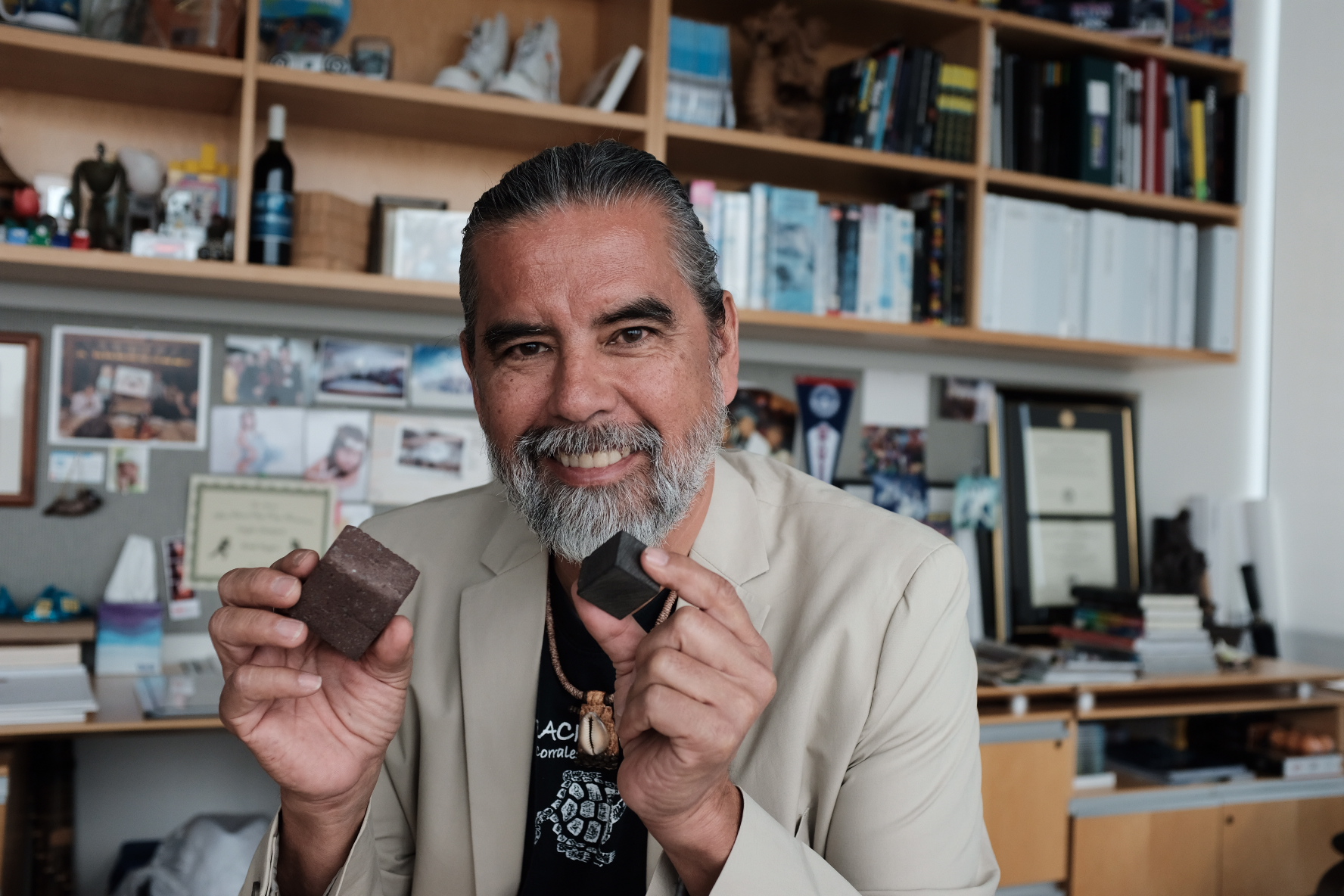Solving the Energy Puzzle: Henk Rogers

Henk Rogers helped make Tetris a global sensation. Can he do the same for clean energy?
If you played Tetris on Nintendo’s Game Boy in the 1990s—you can thank Henk Rogers. An ambitious gaming entrepreneur in the ‘80s, he secured the rights to the game in a negotiation with the Soviet Union so harrowing, it inspired a movie. (“Tetris” is set to be released this summer on Apple TV+.)
But that’s a story for another time.
Instead, let’s start in 2005 when Rogers found himself in the back of an ambulance suffering a massive heart attack. His left anterior descending artery was critically blocked, a condition called the “widow maker” because the survival rate is just 6 percent. “I was lucky to be just minutes away from a major angioplasty facility,” says Rogers. “Had I been anywhere else that day, I would have died.”
After getting two stents placed, Rogers stayed in the hospital to recover. During that time, he reflected on what he’d do with his second chance. He was only 51. He’d already made enough money that he didn’t need to work. He’d put his children through college. He asked himself, “What do I still have to do?” Then an article on the back of a newspaper caught his eye. It said that all the coral in the world would be dead by the end of century because of ocean acidification, recalls Rogers. What causes ocean acidification? One culprit is the use of carbon-based fuels.
“I said, okay, the first item on my bucket list—my first mission—will be to end the use of carbon-based fuel. That was the start of the Blue Planet Foundation.”
Since 2008, the Blue Planet Foundation has played a critical role in shaping energy policy in Rogers’ home state of Hawaii. In 2015, it scored a major win when state lawmakers passed the very first 100 percent renewable energy law in the United States, committing Hawaii to running entirely on renewable energy by 2045. More states have since followed suit.
With a coalition of nonprofits and NGOs called the Blue Planet Alliance, Rogers is now on a mission to convince the rest of the world to shift to renewable energy sources like solar, wind, and geothermal by 2045. He says it’s not only possible, but also advantageous—especially for island nations with abundant sunshine. Solar allows them to become energy independent and no longer pay to import oil. “It saves you money, and it makes you money,” he says.
The Blue Planet Alliance is also developing a rating system to help consumers easily understand how good or bad a product is for the planet, and an app that suggests eco-friendly actions and awards users with points for each action completed.
“If we don’t change our ways, we will use every last bit of our resources on this planet,” Rogers says. “That’s why the Blue Planet Alliance is only going to work on things that have a chance of having a worldwide, global impact,” he says. “And I’d love to have more allies.”


Leave a Reply